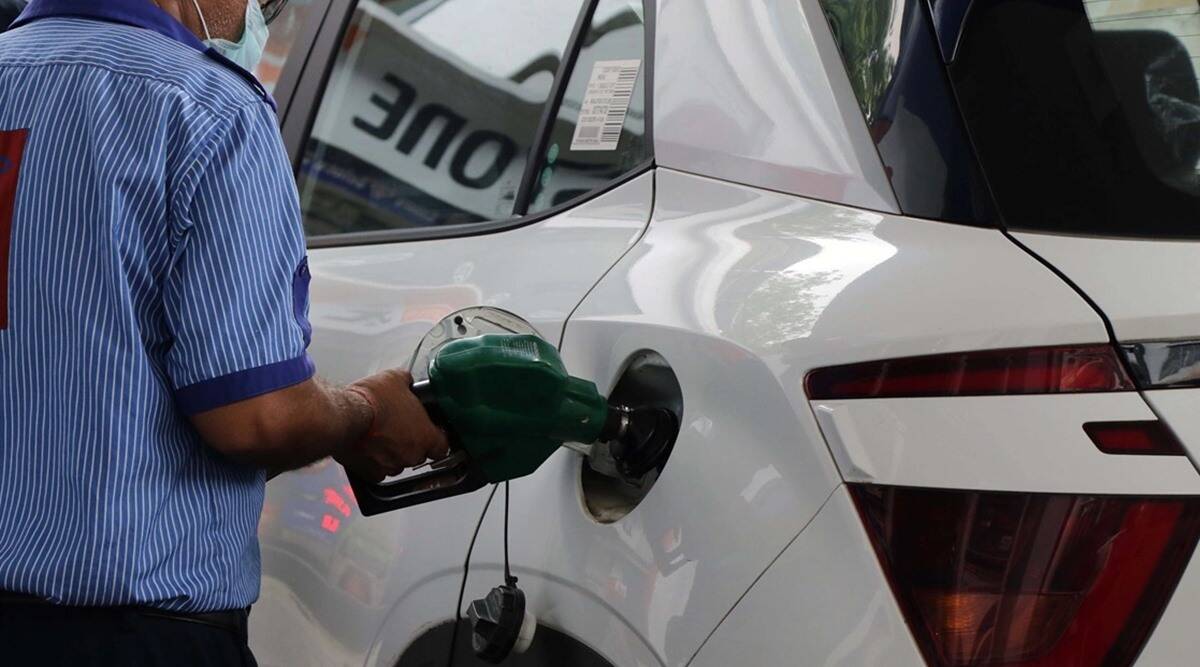 “To deal with vehicular emissions, we usually take measures, even in the winter action plan. In addition to this, there is a new development which is still in process," Environment Minister Gopal Rai said. (File)
“To deal with vehicular emissions, we usually take measures, even in the winter action plan. In addition to this, there is a new development which is still in process," Environment Minister Gopal Rai said. (File)From October 25, pollution under control (PUC) certificates will be mandatory for refuelling at petrol pumps in Delhi.
Announcing this at a press conference, Delhi Environment Minister Gopal Rai said: “To deal with vehicular emissions, we usually take measures, even in the winter action plan. In addition to this, there is a new development which is still in process. This year, as pollution levels increase in winter, people will not be able to fill petrol at a pump without a valid pollution under control certificate. The government is preparing for this. On March 3, a public notice inviting suggestions on this was invited. On September 29, there was a meeting with the Transport Department, Environment Department and Traffic Police on this.”
“The Transport Department will issue a notice on this on Monday. People will be given time till October 25. From October 25 onwards, people will not be able to fill petrol and diesel at petrol pumps without a PUC certificate. A notification will be issued soon,” Rai said.
Rai said some petrol pump owners have expressed concern that this may result in long lines of vehicles awaiting refuelling. The Traffic Police and Transport Department are preparing to handle this, he said, adding that “a clearer picture will emerge in a week”.
According to the Delhi Transport Department, over 17 lakh vehicles, including 13 lakh two-wheelers and three lakh cars, were plying without valid PUC certificates till July 2022. If caught without a valid PUC certificate, vehicle owners may face imprisonment up to six months or fine up to Rs 10,000 or both as per the Motor Vehicles Act.
Last October, the Transport Department had issued a circular deploying enforcement staff at petrol pumps to check PUC certificates.
Meanwhile, ahead of the anticipated spike in air pollution levels in the winter, a 24×7 green war room will be launched at the Delhi Secretariat on October 3. Implementation of the Graded Response Action Plan (GRAP) and winter action plan will be monitored from this war room.
From October 10, the spraying of the PUSA bio-decomposer, which is meant to help with the decomposition of paddy stubble after the kharif harvest, will begin. Rai said that last year, there were three instances of stubble burning in Delhi — in the Narela, Bawana and Mundka areas.
“In the NCR areas, GRAP is announced, but there is no seriousness in implementation… the problem of pollution is an airshed issue. I request the NCR states to prepare winter action plans and form teams for its monitoring and implementation. A regional task force is also necessary for implementation, with its headquarters within the NCR. We will get in touch with the states on this,” said Rai.
Asked about the Lieutenant Governor’s recent communication to the Chief Minister on delays in tree felling and transplantation permissions for infrastructure projects in the city, Rai said: “Development is necessary, but as far as the Environment Department is concerned, our priority is to plant trees, not cut them. In Delhi, development is needed, but there needs to be a balance. Many agencies, after they get permission, it makes no difference to them. When we asked for reports, many agencies had transplanted trees and then left them. We want development, but we don’t want destruction of the environment. We analyse projects and give permission. Projects are being reviewed…files have been submitted and decisions will be taken.”